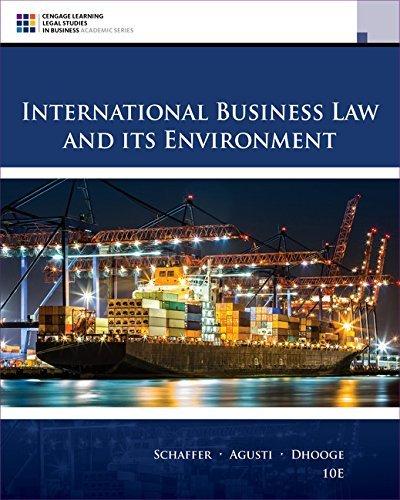An Australian company sought to sell sparkling wine in New Zealand. The wine was made in Australia
Question:
These proceedings are brought by the plaintiffs to protect their claimed property right in the word "Champagne." As an editorial policy in this judgment, I am using the word champagne with a capital when it refers to the district and the wine from the district. The plaintiffs seek in effect to prevent the defendant from importing into New Zealand sparkling wine from Australia labeled champagne.
Champagne ... is relatively new, having its origin in time at the end of the seventeenth century but its final development was a nineteenth century phenomenon. Dom Perignon of the Benedictine Abbey of Hautvillers near Epernay in the Champagne district is credited with its beginning. The two features of Champagne of prime importance for its uniqueness are the soil and climate in which the grapes are grown, and the method of manufacture by skilled personnel. For the production of grapes for Champagne there are strict geographical limitations imposed by law. By [French] law the wine allowed to carry the appellation Champagne must be produced exclusively within precise zones. The essence of the methode champenoise is that the process of second fermentation takes place in the bottle in which it is sold.
1. The result in this case means that "champagne" is an enforceable IPR in New Zealand and the United Kingdom, but not in Australia, Canada, or the United States. Do you think that the court's approach was objective or subjective? What does this suggest about trademark law?
2. The court reached its decision by reviewing evidence about association between the word champagne and the product from France. Such surveys were organized and conducted by experts for each of the parties. Were these surveys subjective or objective? Whose job is it to determine which surveys are more reliable?
3. The Coca Cola Company hires personnel worldwide to assure that when consumers order a "coke," they are either served Coca-Cola products or are advised that none are available. Why?
Fantastic news! We've Found the answer you've been seeking!
Step by Step Answer:
Related Book For 

International Business Law And Its Environment
ISBN: 9781305972599
10th Edition
Authors: Richard Schaffer, Filiberto Agusti, Lucien J. Dhooge
Question Posted:





